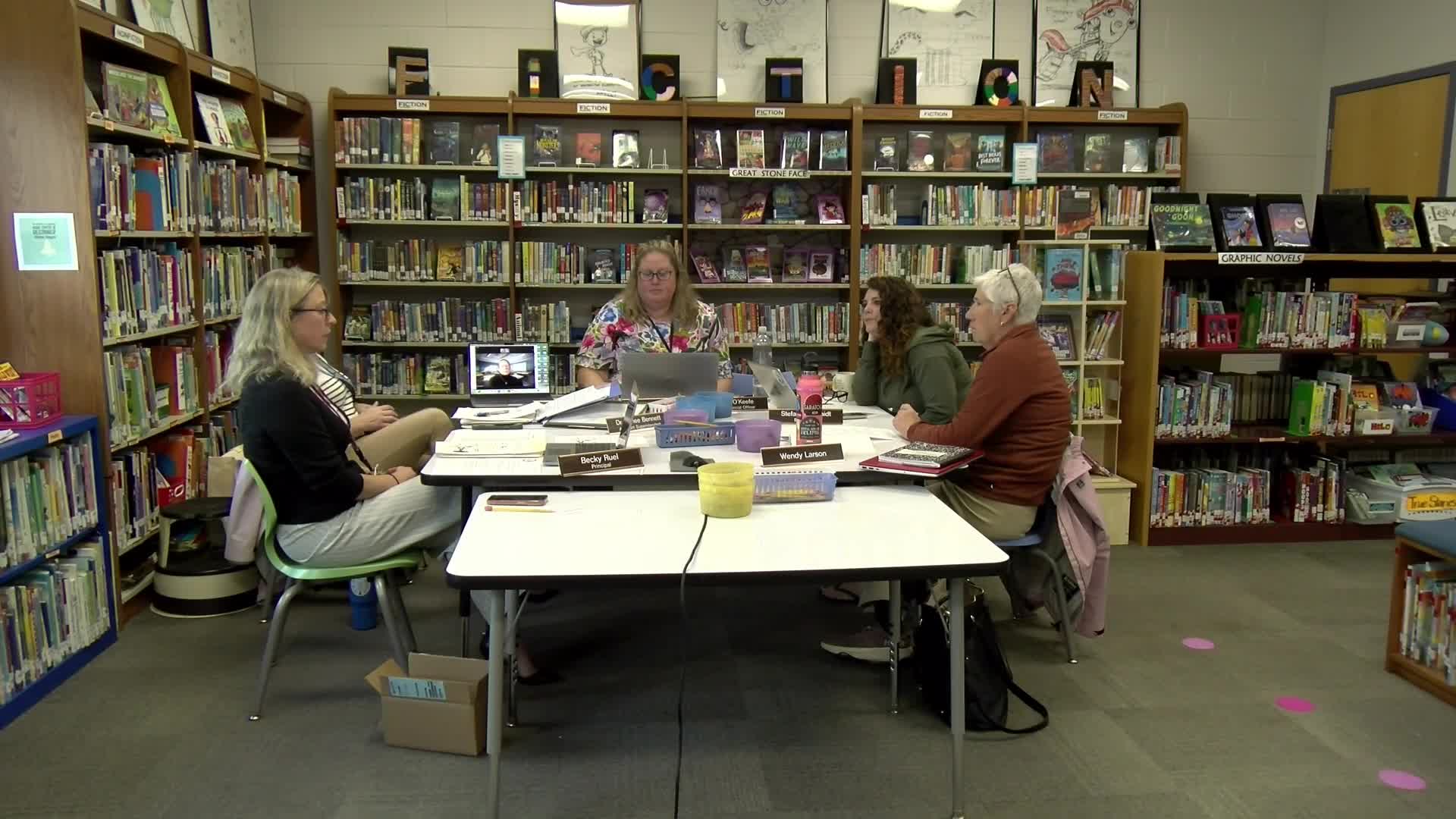Kensington to pilot two literacy programs to meet state 'science of reading' requirement
Get AI-powered insights, summaries, and transcripts
Subscribe
Summary
District staff said they will pilot two literacy programs targeting the 'upper end' of reading development to comply with a state mandate on the science of reading. Pilot materials and training this year cost about $6,000; full K'5 adoption is estimated at up to $30,000.
Kensington administrators told the school board they will pilot two literacy curricula this year as part of meeting a state requirement commonly described in the meeting as the "science of reading" mandate.
Becky (Principal) said teachers began a pilot of one program last week and will pilot the second program in the spring. The two programs identified in the staff memo and discussion were named "Arts and Letters" and "Fish Tank" in the materials presented to the board. Staff said the selected programs emphasize vocabulary, background knowledge and comprehension'the "upper end of the reading rope"'rather than the phonics and decoding elements the district already covers with programs like Heggerty and Orton-Gillingham.
Cost and timeline Staff said the pilot year cost about $6,000, covered by REAP grant money this year. If the board and SAU decide to adopt a single K'5 program for implementation, staff estimated one-time materials and training costs could reach about $30,000; recurring costs would primarily be consumable student materials. Staff also noted potential cost-sharing savings if multiple SAU 16 schools adopt the same program.
Evaluation and regional coordination Administrators said pilot evaluations will examine curriculum quality, usability, student impact and alignment to standards; results will feed into SAU-level conversations in 2027 over whether to adopt a common program across SAU 16 elementary schools. Jillizio (Director of Curriculum) and reading specialists used a rubric to narrow program choices before recommending the two pilots.
Funding options and caveats Renee (SAU 16 administrator) cautioned that federal grants such as REAP have been used as flexible funding in the past, but allocations are inconsistent and should not be treated as guaranteed revenue for long-term costs. Staff offered options that would place one-time adoption costs in the FY27 budget (already reflected in the draft) or seek alternative funding sources; any material recurring costs would appear in future operating budgets.
What happens next Teachers will complete multi-week pilots and staff will present evaluation results to the board; SAU-level discussions about a common K'12 approach are scheduled for 2027. The board asked staff to include curriculum costs and the pilot evaluation in the November draft budget packet.
